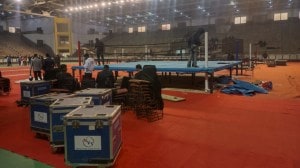Prepare work plan for merger in three months: DoT to BSNL,MTNL
We have asked both the companies to submit a report suggesting ways to merge the two companies in three months, said a senior DoT official.
To ensure that a repeat of the failed Air India-Indian Airlines merger does not happen,the Department of Telecommunications DoT has asked Bharat Sanchar Nigam Ltd BSNL and Mahanagar Telephone Nigam Ltd MTNL to prepare a work plan for their merger within three months.
The merger of the two companies makes a lot of sense but it comes with a lot of complications,which includes one company being a public limited firm and the other not,and it will be best to ask both to suggest ways for it. We have asked both the companies to submit a report suggesting ways to merge the two companies in three months, said a senior DoT official.
The merger of Air India and Indian Airlines is considered a failed case,and one reason for this failure was the lack of prior consultations with the employees of both airlines.
The official added that the whole process of merger,which includes hiring consultants,will only be initiated after the two companies submit the report. MTNL is listed on the BSE while BSNL is unlisted.
BSNL provides fixed line,mobile,broadband and Internet services in 20 circles other than Delhi and Mumbai,which is covered by MTNL. BSNL and MTNL are both in the red with the former registering a net loss of Rs 8,851 crore during 2011-12. MTNL registered losses of Rs 4,018 crore in 2011-12 on revenues of Rs 3,400 crore.
The DoT official said that the problems with MTNL and BSNL aggravated after 3G auctions in 2010,as they had to pay Rs 28,000 crore as spectrum charges to the government for 3G airwaves and Broadband Wireless Access.
The other reason why these companies are not being able to compete against the private telecom firms is an issue of legacy as they earlier provided only landline services and that had led to a lot of staff on their rolls.
BSNL employs around 3 lakh and MTNL has around 60,000 employees. The staff cost at these companies eats into over 50 per cent of revenues,the official said.
With increase in mobile penetration and decline in landline subscribers,these companies started seeing fall in revenues that contributed to their decline. And that led to their market share declining from over 50 per cent to around 11 per cent now, the official added.
Both companies have now started the process of reviving themselves. BSNL has started the process of monetising its assets,hiving off its tower business,shedding employees through voluntary retirement scheme and focusing on expansion of the GSM mobile telephony business. We hope that the proposals these companies are working on will help them turnaround in two years time, said the official.
- 01
- 02
- 03
- 04
- 05






























